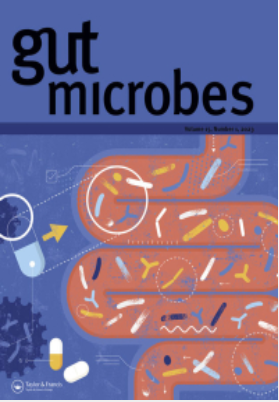Lachnospiraceae-bacterium alleviates ischemia-reperfusion injury in steatotic donor liver by inhibiting ferroptosis via the Foxo3-Alox15 signaling pathway.
IF 12.2
1区 医学
Q1 GASTROENTEROLOGY & HEPATOLOGY
引用次数: 0
Abstract
Ischemia-reperfusion injury (IRI) is a major obstacle in liver transplantation, especially with steatotic donor livers. Dysbiosis of the gut microbiota has been implicated in modulating IRI, and Lachnospiraceae plays a pivotal role in regulating host inflammatory and immune responses, but its specific role in liver transplantation IRI remains unclear. This study explores whether Lachnospiraceae can mitigate IRI and its underlying mechanisms. We found Lachnospiraceae-bacterium (Lachn.) abundance was significantly reduced in rats with liver cirrhosis. Lachn.-treated rats exhibited improved intestinal permeability, reduced IRI severity in both normal and steatotic donor livers, and decreased levels of neutrophil and macrophage infiltration, and inflammatory cytokines. Multi-omics analysis revealed elevated pyruvate levels in transplanted livers after Lachn. treatment, alongside reduced Alox15 and Foxo3 expression. Mechanistically, Lachn.-derived pyruvate inhibited Alox15 expression and reduced ferroptosis in normal and steatotic donor livers. Furthermore, reduced nuclear translocation of Foxo3 further suppressed Alox15 expression, alleviating IRI, especially in steatotic donor livers. Clinical samples confirmed reduced donor livers IRI in cirrhotic recipients with high Lachn. abundance after liver transplantation. In conclusion, Lachn. alleviates IRI in steatotic donor liver transplantation by inhibiting ferroptosis via the Foxo3-Alox15 axis, providing a potential therapeutic strategy to modulate gut microbiota to alleviate IRI following liver transplantation.求助全文
约1分钟内获得全文
求助全文
来源期刊

Gut Microbes
Medicine-Microbiology (medical)
CiteScore
18.20
自引率
3.30%
发文量
196
审稿时长
10 weeks
期刊介绍:
The intestinal microbiota plays a crucial role in human physiology, influencing various aspects of health and disease such as nutrition, obesity, brain function, allergic responses, immunity, inflammatory bowel disease, irritable bowel syndrome, cancer development, cardiac disease, liver disease, and more.
Gut Microbes serves as a platform for showcasing and discussing state-of-the-art research related to the microorganisms present in the intestine. The journal emphasizes mechanistic and cause-and-effect studies. Additionally, it has a counterpart, Gut Microbes Reports, which places a greater focus on emerging topics and comparative and incremental studies.
 求助内容:
求助内容: 应助结果提醒方式:
应助结果提醒方式:


